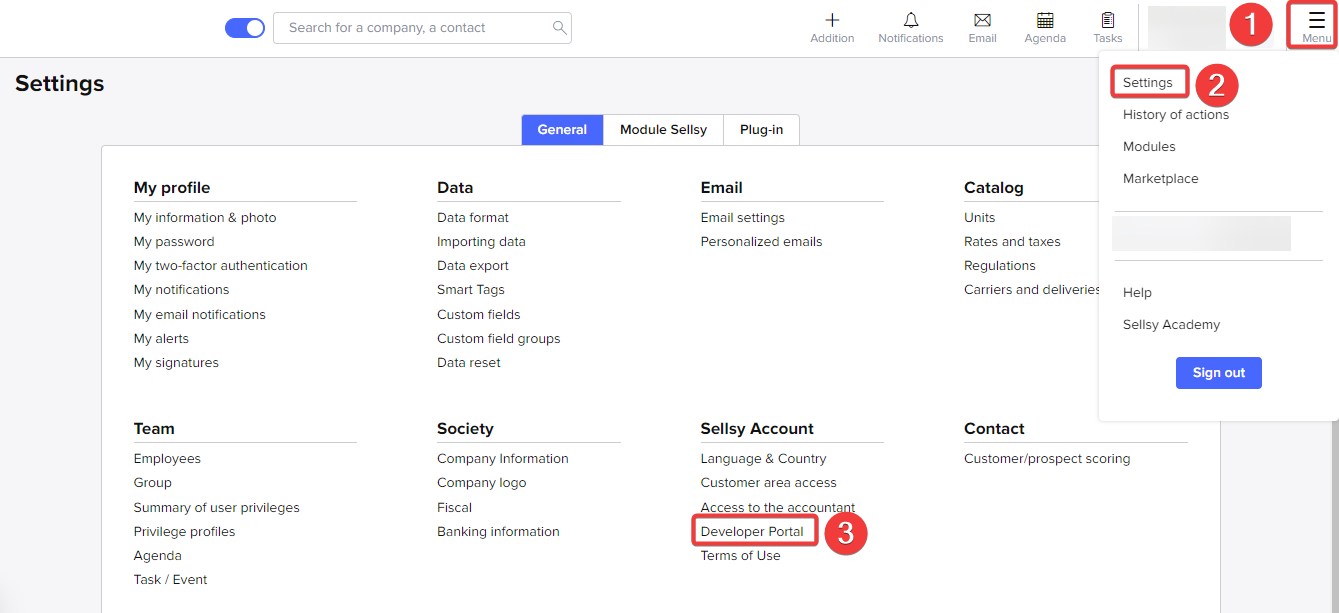Sellsy
With Sellsy modules in Make, you can monitor, create, update, send, retrieve, list, and delete the clients, comments, contacts, events, opportunities, prospects, suppliers, and tasks in your Sellsy account.
To get started with Sellsy, create an account at go.sellsy.com/en/
Refer to the Sellsy API documentation for the list of available endpoints.
Connect Sellsy to Make
There are two ways to connect the Sellsy app: Public and Private.
Public: API access is linked to a collaborator, and the OAuth2 client credentials require validation from the Sellsy team to use.
Private: API access is limited to collaborators of your Sellsy account.
To establish the connection:
Log in to your Sellsy account.
Click Menu > Settings > Developer Portal.

Click API V2 (beta) > Create API access and select the access type.

Enter the following details and click Save.
Access Name
Name for the API access.
Redirect URLs
https://www.integromat.com/oauth/cb/sellsy2https://www.make.com/oauth/cb/sellsy2Scopes
Select the required scopes for the API access.
Copy the client credentials to a safe place.
Log in to your Make account, add a Sellsy module to your scenario , and click Create a connection.
Optional: In the Connection name field, enter a name for the connection.
In the Client ID and Client Secret fields, enter the client credentials from step 5, and click Save.
Note: To add additional scopes, switch on the Show advanced settings toggle and either select, map, or enter the scopes.
You have successfully established the connection. You can now edit your scenario and add more Sellsy modules. If your connection requires reauthorization at any point, follow the connection renewal steps here.
Build Sellsy Scenarios
Watch Contacts Created
Watch Contacts Updated
Create a Contact
Update a Contact
Get a Contact
Search Contacts
Delete a Contact
Watch Company Created
Watch Company Updated
Create a Company
Update a Company
Get a Company
Search Companies
Delete a Company
Watch Opportunity Created
Watch Opportunity Status Updated
Create an Opportunity
Update an Opportunity
Get an Opportunity
Search Opportunities
Delete an Opportunity
Watch Task Created
Watch Task Updated
Watch Task Deleted
Create a Task
Update a Task
Get a Task
Search Tasks
Delete a Task
Create a Calendar Event
Update a Calendar Event
Get a Calendar Event
Search Calendar Events
Delete a Calendar Event
Create a Comment
Update a Comment
Get a Comment
Search Comments
Delete a Comment
Make an API Call